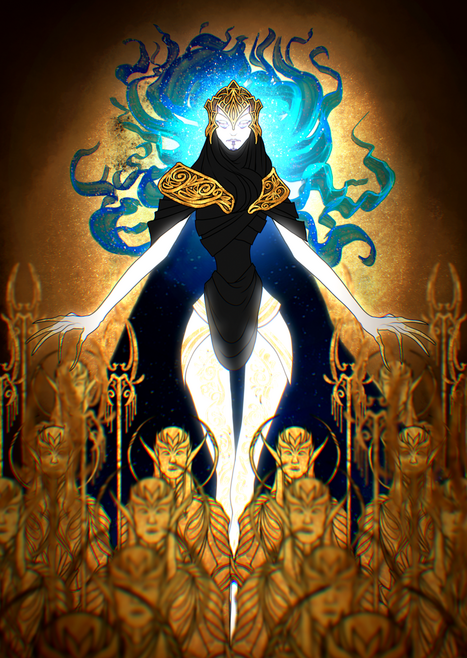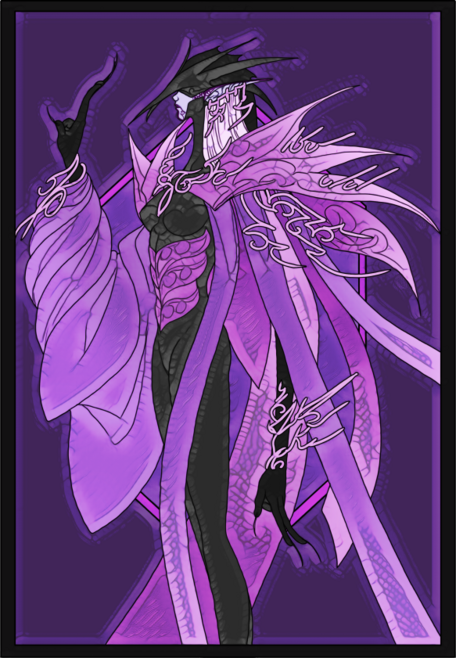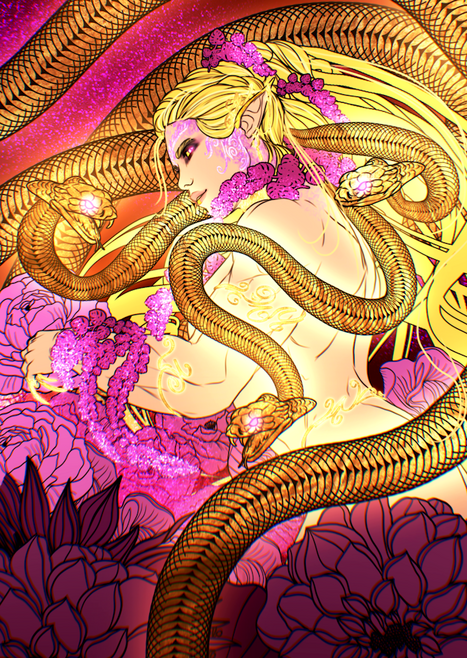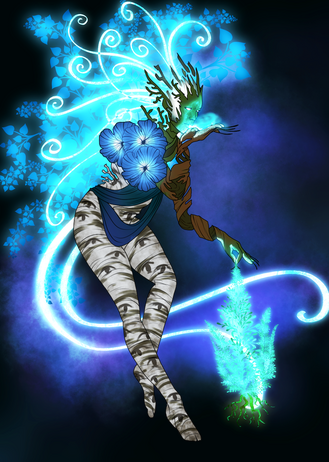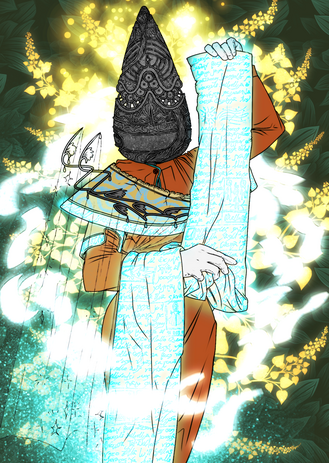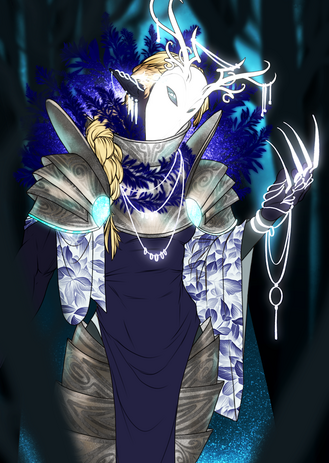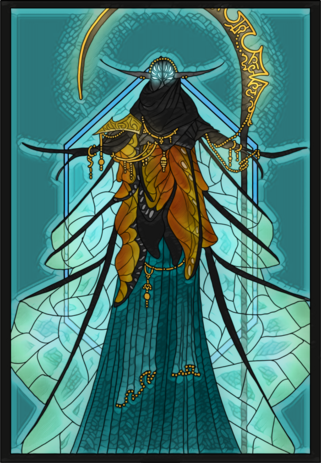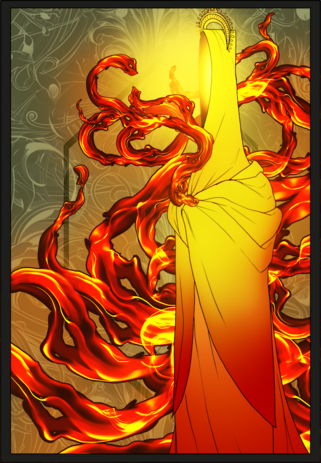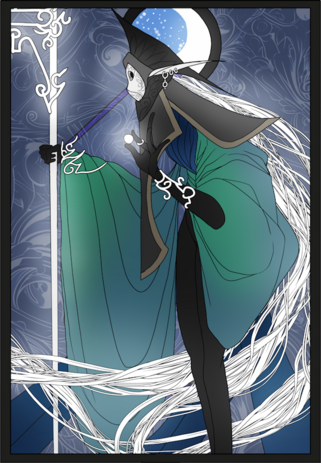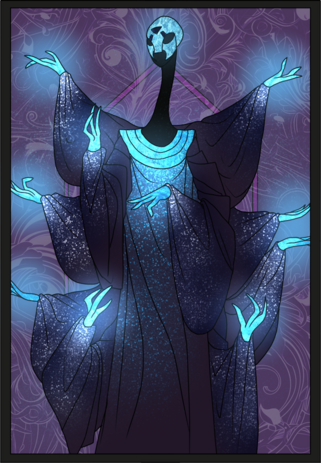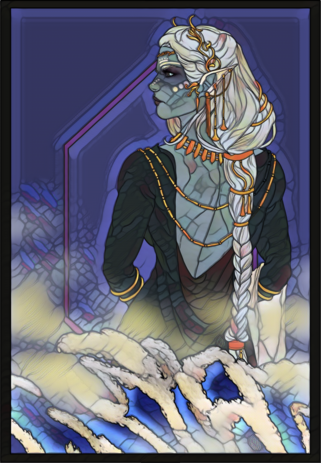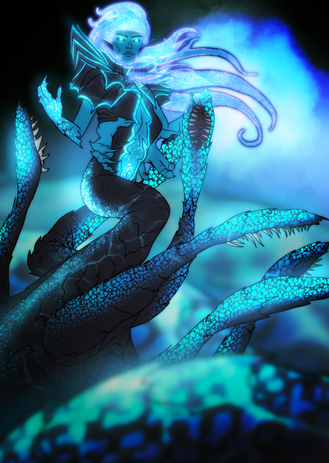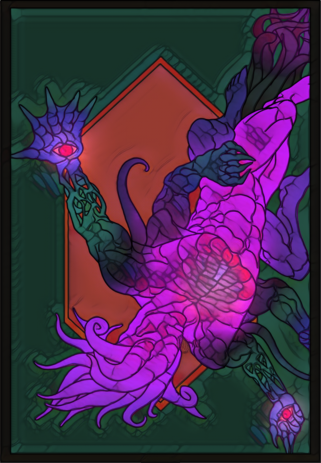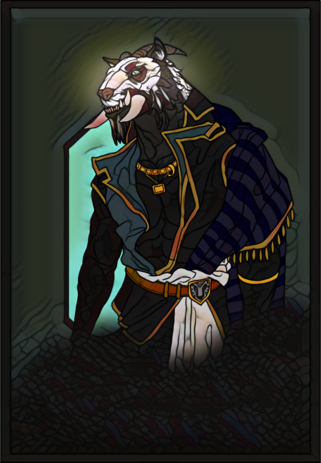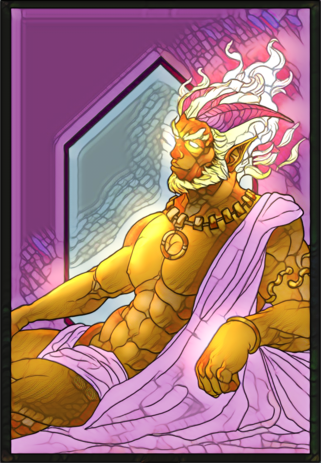| Estelley |
|---|
 |
| Religion |
|---|
| Pronunciation |
Es-te-ley |
|---|
| Origins |
Presumed roughly 15,000 years ago. |
|---|
| Deities |
|---|
|
Three greater Gods, 5 Gods, 5 optional Gods. |
Origins
Core Beliefs
Central Message
Perfected Will
The Afterlife
The Ruindawn
Avinla's Death
Gods and Goddesses
Estelley as a Religion has one unified Pantheon, but not all Gods are treated equal. At the head of the Pantheon are the three Empresses, of which there have only ever been three, and there will always be three. Then come the Ordained, which are Gods that either joined willingly or were conquered during the Ruindawn. Finally, there are the Vowed which similarly joined willingly or were conquered, but who are not considered unquestioningly loyal to the Empresses. As a result, while worshiping the Empresses and the Ordained is mandatory for the religion, worshiping the Vowed is optional. One can worship a single Vowed God, a few, or none at all, it all depends on the person's personal preferences. Note, because a lot of art on this page is still in development, old placeholders are put in place. Do not for the time being refer to these old images for aesthetic inspiration (the temporary images have black borders).
The Empresses
Cemaan, Empress of Power.
Sapphora, Empress of Love.
- Cemaan (pronounced say-maan) is the Empress Goddess of power and domination. She represents the will for increased fame, increased influence, and increased legacy. She embodies the perfection of fame, that her followers should not disappear into the crowd, to be forgotten by the world. Cemaan is historically seen as the patron Goddess of the Teledden Elves and the Allorn Empire. She is one other Triarchy Empresses, and even though they should rule the Pantheon, but Cemaan cannot.
- Talea (pronounced ta-leya) is the Empress Goddess of war and conquest. She represents the will of nationhood to expand, she represents the inner desire for societies to clash and establish the better and the elder. She embodies the perfection of conflict, that her followers are able to defend themselves and better yet, subjugate others by force of arms whether it be weapons or magical. She is one of the Triarchy Empresses, and even though they should rule the Pantheon, Talea rules alone.
- Sapphora (pronounced sa-fo-ra) is the Empress Goddess of love and passion. She represents the will to be desired and adored, to be seen truly and to be loved truly. She embodies the perfection of beauty and want, that her followers should always seek ways to mentally and physically please others in appearance and presentation, and thus spread influence through the heart. She is one of the Triarchy Empresses, and even though they should rule the Pantheon, but Sapphora will not.
The Ordained
Mana, Goddess of Kind Nature
Aseia, God of Magic Knowing
Artarel, Goddess of Just Law
Ammuloa, God of the Death Kiss
Avinla, Goddess of Living Fire
Leyon, God of Farsight Keys
- Mana (pronounced ma-naa) is the Goddess of nature and kindness. She represents the whole of the natural world in all its beauty and plant-life. All the trees, all the flowers, and even the grassfields are given nurture by her will. But she is also the Godddess of kindness and compassion, hers is the perfection of empathy that wishes for a kindness received for each given. Seen as the mother of the Yanar people, Mana suffered in the fall of the Allorn Empire greatly to a weakened state.
- Aseia (pronounced a-say-a) is the God of knowledge and Magic. They are the all-knowing of the Gods, who holds deep ancient secrets and arcane power. They are the perfection of the Arcane, teaching that all must seek some knowledge, understanding, or use of Magic, and to be completely devoid of any insight in the matter, is a great personal failing. They also preach for the perpetual training of the mind, to always be learning new things, and to absorb new concepts and literature.
- Artarel (pronounced ar-ta-rel) is the Goddess of Justice and Law. The laws and codes of the Allorn Empire were made by her will, and first to be perverted by her enemies when the Empire declined. Artarel is the perfection of justice, a cruel but just sense of cosmic rightness, that all the stars will not shine brightly until all injustices are excised from the world. She preaches that all followers bear common responsibility for the fair treatment of all, and equality at the end.
- Ammuloa (pronounced amuu-loa) is the God of the dead and the afterlife. He ordains the burial rites and teaches the priests the dogma of the faith. He represents the perfection finality, that all good things must come to an end, and that all bad things must also. He preaches a drive in the faithful to seek enlightenment, or achievement, or service before it is all too late and their soul is lifted onto the perfected balance where he measures their worth for the afterlife, or reincarnation.
- Avinla (pronounced avin-la) is the goddess of life and the motherhood. She represents the future of the people and is the patron of all children and parents who foster new life. She is said to breathe the perfection of enduring into every newborn, to create joy, happiness, and to please the self. To Avinla, life is a gift that must be experienced, and she endears a curiosity for that beyond the familiar, and a wanderlust to those trapped by the confined. Avinla is currently in a death-slumber.
- Leyon (pronounced lay-on) is the God of farsight and seers, and of secrets and keys to unlock them. While he is only an Ordained God, many other Gods in the pantheon see to him for guidance because the Empresses are fickle, and his foresight means he commands greater wisdom than Aseia's library could. Leyon is the perfection of resolution, resolution to problems and to unknown things and to open doors to create new opportunities and find lost things. His oracle dreams are a pathway to this.
The Vowed
Melca, Goddess of Guarded Companions.
Sinnavei, Goddess of Wealth and Trade.
Vyrë, Goddess of the Unknown Seas.
Soma, Goddess of Time and Logic.
Gilan, God of the Beast Hunt.
Marcan, God of Progress of Change.
- Melca (pronounced mel-ka) is the Sihndar Goddess of protection and companionship. Melca warns against solitude and loneliness, that all great struggles and trials of life are overcome through togetherness and loyalty, and that no one can overcome their demons alone. Her perfection is the vanguard shield, a demand that the faithful protect each other and their lords in a way she could not do for her people. Melca became an Estelley Goddess when her entire people, the Drovv, were slain in the Void Invasion.
- Sinnavei (pronounced see-na-vey) is the Solvaan Goddess of wealth, trade, and commerce. While this largely covered material wealth like currency and property, it also refers to a richness in opportunity and social means, in essence to be rich in anything that one can have many things of. Her perfection is the seizing of opportunism and the recognition of pathways previously untreaded. Sinnavei is sometimes seen as a traitor Goddess, because she is also a Goddes in the Unionism faith, and has a Demon Consort.
- Vyrë (pronounced vee-ray) is the Fin'ullen Goddess of the vast oceans and the unknown. She commands respect and humility to the followers when faced with the vast unknowns of the world, and to not boldly look danger in the eye with expectation of assured victory. Her perfection is awe and respect for authority, seniority, and power, but to show bravery despite it all. She is sometimes also called the Empress of Seas, implying she might have the power to compete with the other Empresses.
- Soma (pronounced so-ma) is the Abismaï Goddess of time and logic. Her perfection is more esoteric than the others, in preaching that knowing the past and the present allows one to make an intellectual summary of the future. While the other Gods wield much in the ways of knowing, Soma represents the idea that all this knowing is meaningless if someone lacks the mental faculties and insight to understand the world deeply beyond face value. Soma also has immense power over time, competing with Dragons.
- Gilan (pronounced gee-lan) is the Selvath God of the wilds and the hunt. He represents the animal domains that are subservient to the followers created with intellect to rule. His is the perfection of control and submission, to lord over animals but to care for them, to control their population numbers but to do so with grace and respect. To Gilan and his followers, the animal kingdom is a beautiful and respectworthy plaything, and the activity of the hunt is the greatest flattery of it.
- Suellon (pronounced sue-ellon) is the Chantli God of progress through change. He is the only Estelley God that was once a mortal man, who merged with the remnants of a long-dead Avarr God to ascend godhood. He represents the changing seasons, and his perfection is forever progress, the idea that some form of progress or change is always good and that the faithful should not shirk from change just because of discomfort. He is a controversial Estelley God, because he often acts against the other Gods.
| Accreditation |
|---|
| Writers |
OkaDoka |
|---|
| Artists |
MonMarty |
|---|
| Processors |
FireFan96 |
|---|
|
| Last Editor |
MonMarty on 07/12/2024. |
|---|
|
|---|
» Read more

